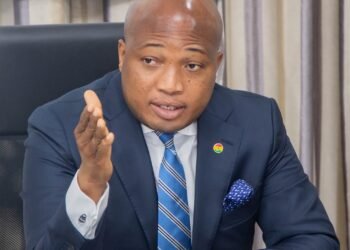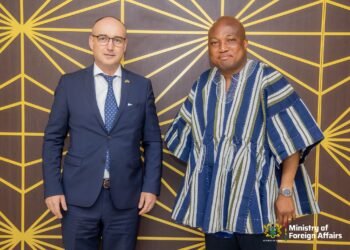The government of Ghana has shown interest in nuclear power as part of its strategy to diversify its energy sources and reduce its dependence on fossil fuels. Investments in nuclear power would involve building nuclear power plants, which would require significant capital and technical expertise.
Ghana, like many developing countries, has faced significant challenges in meeting its growing energy demands. The country’s power crisis, characterized by frequent blackouts and unreliable electricity supply, has been a persistent issue. The frequent power outages, known as ‘dumsor,’ have hindered economic growth, inconvenienced households, and affected the overall quality of life. The government of Ghana, in response to these challenges, has been exploring various energy sources to diversify its energy mix and ensure a stable power supply.
“Nuclear Power Ghana Limited and China National Nuclear Corporation Overseas Limited have… signed a cooperation and framework agreement for the construction of the HPR 1000 Technology Nuclear Power Project and the upgrade of Ghana’s grid. This took place on the peripheries of the 26th World Energy Congress in Rotterdam, Netherlands.”
Dr. Matthew Opoku Prempeh, the Minister of Energy
The power crisis in Ghana is a multifaceted issue, rooted in a combination of factors including inefficient energy management, overreliance on fossil fuels, and inadequate infrastructure. The country’s energy demand far outstrips its supply, leading to frequent power outages and blackouts. These disruptions not only affect the daily lives of Ghanaians but also hinder economic growth and development.
Nuclear power, known for its high energy density and low carbon emissions, offers a promising solution to Ghana’s power crisis. Unlike fossil fuels, nuclear power does not emit greenhouse gases, making it a cleaner alternative for electricity generation. Moreover, nuclear power plants can operate continuously, providing a stable and reliable source of electricity.
Government’s Investment in Nuclear Power

Dr. Matthew Opoku Prempeh, the Minister of Energy stated in his address at the signing of the agreement, “This is pursuant to cabinet approval for the inclusion of nuclear in our energy mix. This is also in furtherance of Ghana’s quest for clean nuclear energy towards net zero.”
The inclusion of nuclear power in Ghana’s energy mix would provide a stable and reliable source of electricity, enhancing energy security. Nuclear power plants operate continuously, providing a constant supply of electricity that is not dependent on weather conditions or the availability of fossil fuels.
This stability would greatly reduce the occurrence of power outages, ensuring a consistent power supply for industries, businesses, and households.
Ghana currently heavily relies on fossil fuels, particularly oil and natural gas, for power generation. This dependence exposes the country to price volatility and supply disruptions. By diversifying the energy mix with nuclear power, Ghana can reduce its reliance on fossil fuels and decrease the vulnerability associated with fluctuating global energy markets.
This shift would also contribute to the country’s efforts to reduce greenhouse gas emissions and combat climate change.
Additionally, investing in nuclear power infrastructure would stimulate economic growth and create job opportunities. The construction of a nuclear power plant requires significant capital investment, leading to the creation of jobs in various sectors such as engineering, manufacturing, and construction.

Moreover, the operation and maintenance of nuclear power plants would require a skilled workforce, leading to the development of a specialized labor market and the transfer of technical knowledge.
“Nuclear power stands as a reliable, efficient, and environmentally friendly source of energy. [It] offers a stable supply of electricity to power our industries, businesses, homes, and indeed, the West African Power Pool. It is a testament to President Akufo-Addo’s vision for a diversified energy portfolio that prioritizes clean and sustainable sources of power.”
Dr. Matthew Opoku Prempeh, the Minister of Energy
This agreement represents a profound commitment to advancing our nation’s energy sector, ensuring sustainable development, and meeting the growing demand for electricity in the country. Ghana is at a crucial juncture in its journey towards economic prosperity, and thus, the integration of nuclear power into our energy mix will play a pivotal role in achieving our goals.
The investment in nuclear power by the government of Ghana presents a promising solution to the country’s power crisis. By diversifying its energy sources and reducing its reliance on fossil fuels, Ghana would not only address its immediate power needs but also contribute to global efforts to combat climate change. While the transition to nuclear power involves significant challenges, the potential benefits make it a worthwhile investment for the future of Ghana’s energy sector.
READ ALSO: Ghana Struggles with Democratic Governance Amidst Growing Disillusionment























